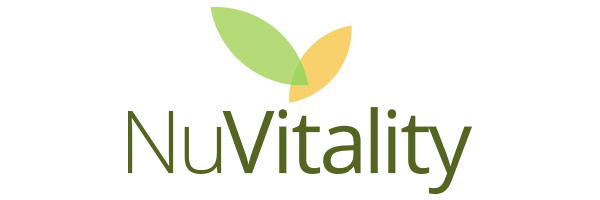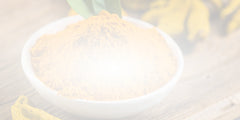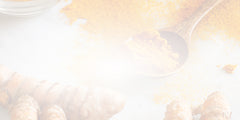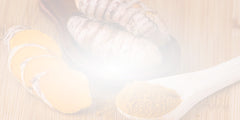
Acne is often associated with the growing pains of puberty during the adolescent phase. Unfortunately, this less than appealing condition is known to strike at a time when we are at our most judgmental. High school is an unfortunate experience if you have a lot of acne. Many people seem to misunderstand that acne is not a condition that goes away with age. It is a constant issue that can reassert itself at any age, depending on the condition of your skin.
If your skin is not well maintained, you should not be surprised to see acne forming on your body. The acne issue in teenagers and adults has led to a surge of anti-acne products. Anti-acne products have become a hot selling product due to the number of people who suffer from chronic breakouts.
The vast majority of anti-acne products involve pharmaceuticals made from synthetic compounds. While these compounds can effectively alleviate acne, the best course of action is to treat your skin preemptively, so it is less prone to acne. While several pharmaceuticals are certainly marketed as such, plenty of people would prefer a more natural alternative.
One potential alternative that might appeal to some is the ever-popular turmeric. While you might have heard of turmeric before, you might be curious how it could help protect your skin from acne.
#1: Turmeric is Antimicrobial
One of the main causes of acne is an accumulation of a bacteria called Propionibacterium acnes in the skin's pores. These pores are small openings in the skin that lead into the human body's inner workings. Additionally, hair follicles in the body are likely to have the same issue of bacteria building up inside. Follicles are also directly connected to the oil glands, which increases the odds of bacterial contamination and makes these follicles a breeding ground for acne. The bacteria and status of the hair follicle determine what type of acne forms.
- Whiteheads: If the follicle wall bulges while bacteria accumulate, you will probably end up with a whitehead. Whiteheads, so named due to the white coloration of the pus beneath the skin layer, are one of the most common types of acne you will end up dealing with.
- Blackheads: Easily the most common of all acne types, blackheads form when a pore or follicle is congested with bacteria and oil. Due to the brown coloration, people once thought that blackheads form when dirt is present. The truth is that the bacteria and oil turn brown once exposed to air.
- Pimples: Pimples, often used as a generic term for acne, is a distinct type of acne denoted by their red appearance. Pimples usually form due to bacteria causing a blockage in the follicle. Though inflammation can also cause pimples, we will deal with that a little later.
With bacteria playing such a large role in the manifestation of acne, it is no surprise that anti-bacterial scrubs have become a popular anti-acne treatment. While these products can be useful, most are made from artificial substances that can be off-putting to those who prefer a natural touch. This brings us to turmeric's first use against acne. Rather, it brings us to curcumin's first use against acne since the curcumin found in turmeric is the show's real star.
Curcuma longa, known colloquially as turmeric, is a primary source of the curcuminoid called curcumin. While the naming scheme is fairly repetitive, the uses of curcumin in the health field have steadily increased in proportion to the research done to evaluate the substance.
Curcumin is far from perfect, though, as it has a remarkably low bioavailability, making using raw turmeric a poor choice. The best way to use turmeric curcumin for any reason is to extract the curcumin and refine it into a supplement. Even that is not sufficient, though, and you will need to improve the bioavailability of the curcumin properly by introducing a catalyst like piperine. Fortunately, piperine is much easier to acquire since it is found in the black pepper found in any kitchen.

Curcumin has several benefits, not the least of which is its nature as an anti-bacterial compound. Researchers first assessed the antimicrobial qualities of curcumin in a series of rat studies, where the curcuminoid proved able to reduce the concentration of Propionibacterium acnes in the test rats.
These studies were further corroborated by a 2013 study where pig skin was used as a host for P. acnes. By combining curcumin with lauric acid, a fatty acid found in coconut or palm kernel oil, the antimicrobial effects of curcumin improved drastically. The combination of curcumin and lauric acid inhibited the growth of P. acnes and other microbial bacteria.
Another study, this time from 2018, exposed curcumin to a low-level blue light before being administered to the test subject. The results again showed an enhanced antimicrobial effect from the curcumin that proved to be more effective at killing P. acnes bacteria. The effectiveness of curcumin for killing acne-generating bacteria is still being fully assessed, especially in humans. But the current research is too promising to deny curcumin is a strong contender for dealing with bacterial acne.
Using a natural antimicrobial is an excellent idea because bacteria play a large role in acne breakouts. Those opposed to chemically based anti-acne treatments will especially benefit from the revelation that curcumin is a natural alternative. Unfortunately, bacteria are not the only source of acne that needs to be considered when narrowing down a natural treatment. Fortunately, the benefits of curcumin do not end with bacterial cleansing.
#2: Turmeric is an Anti-Inflammatory
We previously mentioned how pimples are either the result of bacterial buildup or inflammation in the follicle. Inflammation is a common issue that frequently leads to unpleasant skin irritation when the inflammation is external. Internal inflammation can cause significant health issues, but inflammation in hair follicles and skin pores can lead to acne breakouts. Inflammatory acne is also one of the most damaging since any external irritation to the pimple can lead to scarring where the pimple once sat.
Pimples usually have bacteria in them regardless of inflammation, but heavily inflamed pimples can be large and painful. Like whiteheads, pimples have pus beneath the skin layer, which makes popping them very tempting to those eager to be rid of their acne. If you want to avoid scarring and spreading the pus across your skin, your best bet is to treat the acne rather than pop it. The inflamed pimples can be unpleasant to deal with due to the discomfort they induce, which makes reducing the inflammation an important step.
Fortunately, inflammation is another of the issues that turmeric curcumin is known for treating. Inflammation is the proverbial bread and butter of curcumin since it was one of the initial medicinal uses of the substance. The anti-inflammatory traits of curcumin have been more thoroughly investigated than any other benefit the compound offers.

Several studies investigated the effects curcumin's anti-inflammatory properties have on combatting major health issues like heart disease and ulcerative colitis. Most of these studies yielded promising results for the potency of curcumin's ability to fight inflammation.
With studies proving curcumin able to deal with major inflammation on an internal level, it stands to reason that it can fight off the inflammation that causes acne. While there have been no specific tests to assess curcumin's effects in fighting off inflammatory acne, the effect is not selective. If inflammation is the issue, curcumin seems to have a profound effect on treating the issue, so the inflammation goes down.
If the inflammation is causing acne and the inflammation is treated, it should reduce the size and frequency of the pimples. Though this is still being tested, a study to assess this is not currently in the pipeline. While inflammation and bacteria are among the more common causes of acne, the zits are not the only issue that plagues those with acne.
#3: Turmeric Might Reduce Scarring
We have all been told not to pick at or pop our acne when the blemishes appear in adolescence. Unfortunately, not everyone has the willpower to resist trying to remove them. This is especially true in high school, where such blemishes proved to be detrimental to the fleeting social statuses of that phase of our lives.
While removing the acne at the moment might seem like a relief, it is a decision that ultimately backfires by leaving irrefutable proof of what was once there. Popping or picking at acne often causes scarring on the skin where it was originally rooted. This scarring is not only just as unsightly but can be permanent if done too frequently.
Acne scarring is a common enough issue; reversing it is a concern for many remorseful pickers. While there are some cosmetic tools for correcting acne scarring, there might also be a place for curcumin in the war against acne scarring. Currently, there are no studies evaluating curcumin's use to remove acne scars, but a peripheral study shows that it might have promise in achieving that goal—specifically, a study assessing curcumin's ability to improve hyperpigmentation.

Hyperpigmentation is a common cosmetic issue that causes certain skin parts to appear darker than the rest. While hyperpigmentation is not a major issue compared to the other issues acne causes, it can be detrimental to your confidence. Hyperpigmentation is a possible side effect of acne, with stubborn pimples and zits occasionally leaving dark spots as they begin to fade away. Fortunately, curcumin has been evaluated for potential use in correcting hyperpigmentation with surprising success.
A study found that when combined with a topical cream or other application, curcumin could reduce the dark spots caused by hyperpigmentation. This effect makes curcumin a useful tool for reducing some cosmetic side effects acne is known to produce. While no studies exist to determine how this might affect acne scars, it is possible such a cream could reduce the severity and visibility of the scars. This potential effect will require more study before it can be officially listed as a benefit of curcumin, but such a study should begin in due course.
While the benefits of turmeric curcumin are often thought to be limited to strictly medicinal use, it does show cosmetic promise. Treating acne might seem like a fairly unimportant goal in the grand scheme of things. However, curcumin's use as an acne treatment might help many people who are opposed to chemical treatments who cope with chronic acne. While knowing curcumin's advantages when dealing with acne is important, it does not solve the final challenge of finding a reliable source of curcumin for your needs.
The Nu Healthier You
Acne is a common issue that affects everyone at some point in life. While most of us hope that adulthood will free us from the threat of acne, it can persist until our twilight years. This means that, unless we tend to the health of our skin, we might have acne until our final day. While this might not be the most pressing issue depending on how life unfolds, preventing acne can be remarkably easy when provided with the correct tools.
While most anti-acne tools are artificially made and sold in pharmacies, some prefer a more natural approach. Curcumin seems to be the answer to that issue since its antimicrobial and anti-inflammatory effects can counter some of the main causes of acne.

While curcumin does seem to be a powerful weapon in the war against acne, it is useless if you cannot find a reliable vendor. Fortunately, we at NuVitality can offer a solution to that problem with our turmeric supplements.
Our product provides the necessary daily dose of turmeric in two capsules, making using the compound easier. Our product also ensures that the weaknesses associated with curcumin use are not an issue by correcting the low bioavailability of the curcumin with piperine. If you are dealing with acne or any other issue curcumin might solve, we urge you to visit our website. Let us be the first stop on the journey to the Nu, healthier you.






